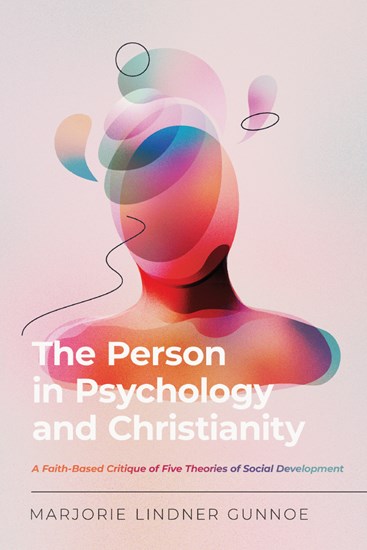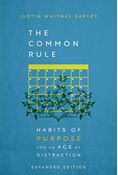
|
The Person in Psychology and Christianity
paperback
|
- Length: 256 pages
- Dimensions: 6 × 9 in
- Published: April 26, 2022
- Imprint: IVP Academic
- Item Code: 2872
- ISBN: 9780830828722
-
Other Retailers:
Amazon*
*affiliate partner
Integral to a Christian worldview and to psychology are foundational questions about personhood: What characteristics are essential? What is our purpose? Do we naturally incline toward good or bad? Are we accountable for self and responsible for others?
In The Person in Psychology and Christianity, developmental psychologist Marjorie Gunnoe demonstrates how the integration of theological and psychological perspectives offers a more comprehensive understanding of personhood than either approach alone. Gunnoe opens with a brief summary of biblical and theological perspectives on four organizing themes (human essence, purpose, moral tendency, and accountability). She then examines the intersection of this faith-based depiction with five theories of social development proposed by
- Erik Erikson
- John Bowlby
- B. F. Skinner
- Albert Bandura
- Evolutionary Psychology
For each, Gunnoe includes a biography, a summary of the theorist's broad perspective on personhood, and an analysis of the theorist's stance on the four specific themes. This book is written for a general audience and suitable for undergraduate and graduate instruction.
Christian Association for Psychological Studies (CAPS) Books explore how Christianity relates to mental health and behavioral sciences including psychology, counseling, social work, and marriage and family therapy in order to equip Christian clinicians to support the well-being of their clients.
"Kudos to Marjorie Lindner Gunnoe for building a new bridge between psychological science and Christian belief. By viewing famed theories of human development through the lens of theology, she illuminates who we are—as embodied, purposeful, moral, accountable children of God. With her lucid prose, informative storytelling, and blend of curiosity and conviction, Gunnoe enlarges our human understanding and informs our faith."
"Gunnoe adroitly demonstrates how modern psychology can constructively inform Christian reflection on the nature of human life and development. I am especially appreciative of the way that her work gives impetus to reconsidering the dark and often destructive depictions of human nature and original sin rooted in the theology of Saint Augustine and, unfortunately, pervasive in much of evangelical theology today."
"What does it mean to be and become human? How can we faithfully engage the very different answers to that question offered by influential psychological theories? These questions matter because, as Gunnoe shows, these theories have influenced the broader culture, shaping our parenting, our schools, and the ways we view and speak of one another. Framed by four fundamental questions about personhood, this work deftly leads readers through a nuanced, critical, and constructive exploration of five different approaches to human becoming. By prefacing each theory with a brief biography of its most influential proponents, Gunnoe invites readers into active dialogue, encouraging them to identify their own beliefs about personhood and to take seriously the positive contributions of each approach, while being honest about limitations. Written mainly for Christians studying or teaching introductory or developmental psychology, this book is also illuminating for parents, pastors, schoolteachers, and anyone interested in what it means to be a person."
"Gunnoe's courageous and helpful work illustrates the challenge and promise of integrating psychological frameworks within a theology of personhood. Her book is a welcome port of entry for this important project."
CONTENTS
Acknowledgments
Part 1: A Faith-Based Working Model of the Person
1. Orientation
2. Essence and Purpose
3. Moral-Ethical Tendencies
4. Agency and Accountability
Part 2: Five Developmental Theories
5. Erik Erikson's Eight Stages of the Lifespan
6. John Bowlby's Attachment Theory
7. B. F. Skinner's Radical Behaviorism
8. Albert Bandura's Social Cognitive Theory
9. Evolutionary Psychology
10. Learning from Developmental Theory
References
General Index
Scripture Index













